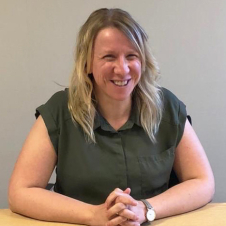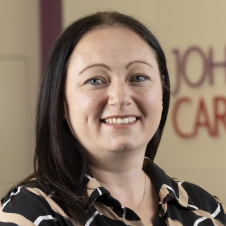Top tips for graduate job applications
So, you’ve finished university, and you’re ready for your next chapter – a graduate job!
Finding the right graduate scheme and securing a place can feel challenging. Luckily, we’re here to help with advice from the experts themselves: our very own graduate students. So, read on for our top tips for graduate scheme success.
Go the extra mile and individualise each application.
Joshua Ruddy, Audit Senior, suggests:
Find out about both the role and the company you are applying for – it goes a long way in both an application and in an interview if you have a sound understanding and are knowledgeable about what you have signed up for. Don’t just look at the company website, try looking up news articles and use any other sources you can think of to really make your application stand out.
Ensure to tailor your CV to each job. You may have a very professional and well laid out CV but this does not necessarily mean that the CV is appropriate for a given role. Recruiters can tell when effort has been made to make a CV line up to a particular role so make sure to do everything possible to maximise chances of success.

Emphasise your skills and experience that are relevant to the job description.
Grant Joss, Tax Senior, says:
Keep it relevant. It’s very easy when completing a job application to churn out every little bit of experience you’ve ever had but this isn’t an effective use of your time.
When competing alongside hundreds of other candidates it’s important to grab the employer’s attention. This means emphasising the skills and experience that are relevant to the job description. Most vacancies will typically include a blurb detailing what the employer is asking for and within this there will be specific words and phrases that are used to describe their ideal candidate. When completing your application make a conscious effort to reference these and tie them back to your previous experiences.
This can feel difficult for those who are applying for jobs in sectors they have not studied in before. Even if you don’t have an accountancy or finance background, you’ll still have numerous skills which are transferrable into that profession. Being able to identify these and link them with the job description is important. One specific, well thought-out application is likely to stand out much more than 10 generic applications.
Take time to research the organisation and role which you are applying for.
Michelle Waugh, Restructuring Assistant Manager, states:
When applying for graduate jobs it’s tempting just to cut and paste generic information from one application to the next and apply for as many roles as possible, but I’d recommend taking the time to research the organisation and role you are applying for. Use this information to firstly hone in on which roles actually interest you, and secondly to tailor your application to both the organisation and role.
Our graduate programme
Ready to put these top tips to good use? Applications for our 2026 graduate programme are now open. Find out more, here.





